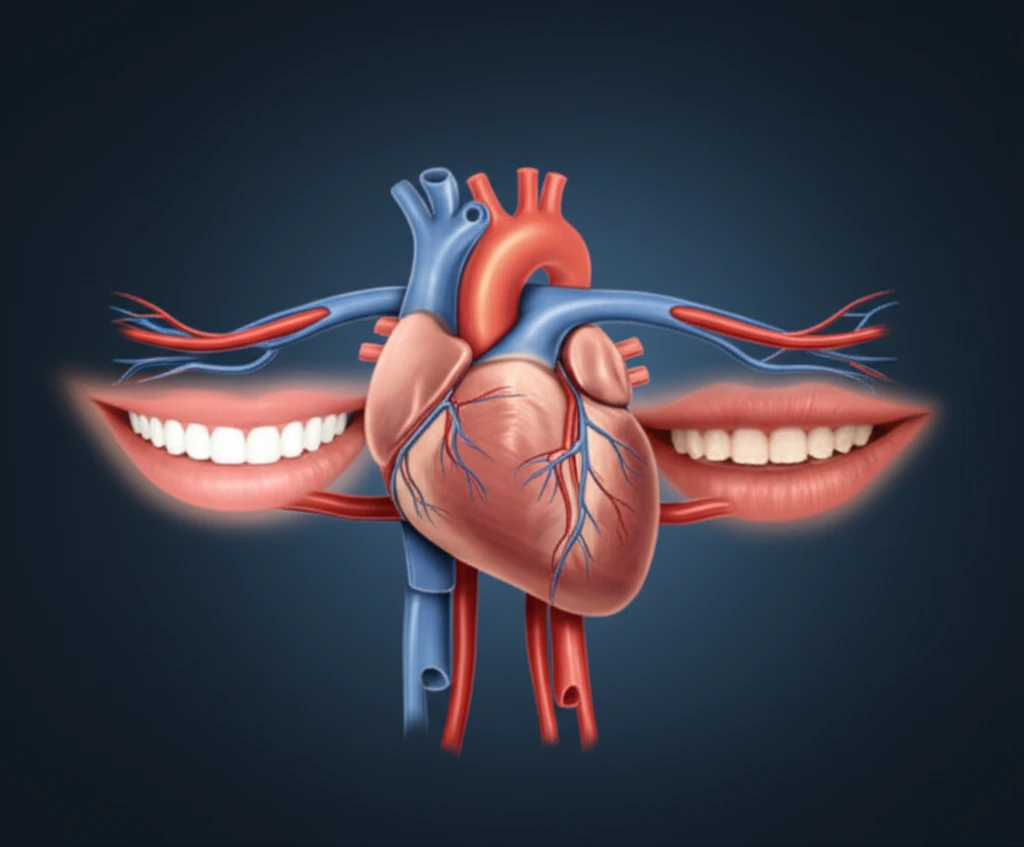
Revolutionary Study Reveals: How Treating Your Gums Could Save Your Heart (and Your Life!)
"Groundbreaking research links intensive periodontal treatment to reduced risks of cardiovascular disease and increased longevity in a vulnerable population."
In the ever-evolving world of health and medicine, we're constantly discovering new connections between seemingly unrelated aspects of our bodies. A fascinating area of research is emerging, revealing that the health of your mouth could have a profound impact on the health of your heart. A recent study has uncovered a groundbreaking link between intensive periodontal treatment – the care and treatment of gum disease – and a significant reduction in the risk of cardiovascular disease, as well as a boost in overall lifespan.
This groundbreaking research provides a fresh perspective on preventive healthcare, particularly for those at higher risk of heart complications. For individuals undergoing hemodialysis (a life-saving treatment for kidney failure), the findings are especially relevant. The study suggests that treating gum disease in this population could be a critical step in improving both their heart health and overall survival rates.
This article delves into the specifics of this compelling study, exploring its methods, results, and implications. We'll also unpack the science behind the link between oral health and heart health, offering practical takeaways for a healthier future. Prepare to be amazed by the potential of something as simple as a dental visit to improve your well-being.
The Unexpected Link: How Gum Disease Impacts Heart Health

The mouth, often considered separate from the rest of the body, is in reality a gateway to your overall health. Gum disease, also known as periodontal disease (POD), is a common condition characterized by inflammation and infection of the gums. This can range from mild gingivitis to severe periodontitis, which can lead to tooth loss. But what many people don't realize is that the effects of gum disease extend far beyond your mouth.
- Inflammation: Gum disease triggers chronic inflammation, which is a key factor in the development of atherosclerosis (the buildup of plaque in the arteries).
- Bacteremia: Bacteria from infected gums can enter the bloodstream (a condition known as bacteremia) and contribute to the formation of blood clots, potentially leading to heart attacks or strokes.
- Endothelial Dysfunction: Gum disease can damage the lining of blood vessels (the endothelium), impairing their function and increasing the risk of cardiovascular events.
Taking Action: Your Path to a Healthier Heart and Longer Life
The results of this groundbreaking study offer a powerful reminder of the interconnectedness of our health. By prioritizing oral health and seeking treatment for gum disease, you're not only protecting your teeth and gums, but also investing in the health of your heart and the longevity of your life. Discussing your oral health with your dentist and proactively addressing any signs of gum disease can make a world of difference. This research emphasizes that taking care of your mouth can be a life-saving strategy, offering a brighter, healthier future for all.
